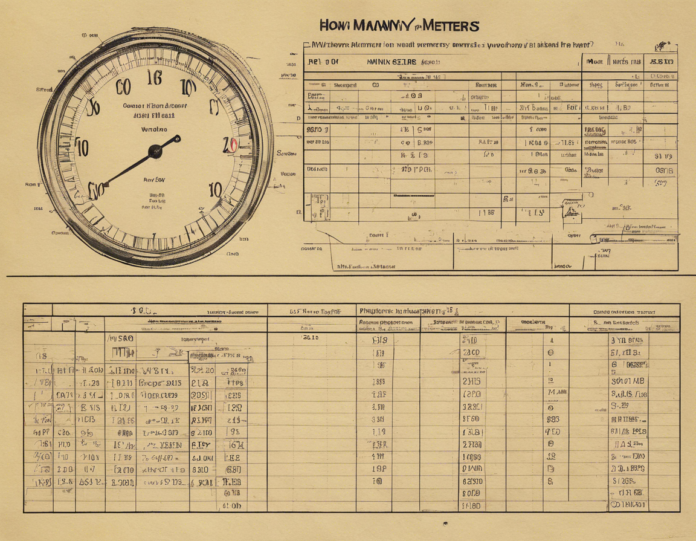When it comes to understanding measurements, one of the most common conversions you’ll come across is that 1 kilometer equals 1000 meters. While this conversion seems straightforward, there are some key aspects and points to consider to fully comprehend and apply this knowledge effectively.
Understanding the Basics:
Kilometer and meter are both units of length in the metric system. The kilometer is a larger unit, while the meter is a smaller unit. The prefix “kilo-” in kilometer signifies a factor of 1000, which means that 1 kilometer is equal to 1000 meters. This relationship is crucial for various real-life applications, such as in mapping distances, calculating velocities, and understanding geographical measurements.
Why is the Conversion Important?
Understanding the relationship between kilometers and meters is essential for various everyday activities. For instance, when you are driving or jogging, distances are often indicated in kilometers or meters. Knowing how to convert between these units can help you plan your journey effectively, estimate travel time, or even assess your fitness progress.
Real-Life Examples:
-
Road Distances: When you see a sign saying a city is 50 kilometers away, you can easily visualize this distance in meters by multiplying 50 by 1000, which equals 50,000 meters.
-
Running Track: If you are training on a 400-meter track, understanding that 400 meters is equal to 0.4 kilometers can be helpful when setting your running goals.
How to Convert Kilometers to Meters:
Converting kilometers to meters involves a simple multiplication process due to the units’ relationship. To convert kilometers to meters, you can use the formula:
Meters = Kilometers x 1000
How to Convert Meters to Kilometers:
Conversely, if you need to convert meters to kilometers, you can use the formula:
Kilometers = Meters / 1000
Importance in Science and Technology:
In scientific and technical fields, the conversion between kilometers and meters plays a vital role. For instance, in astronomy, distances between celestial bodies are often measured in kilometers. When these vast distances need to be used in calculations on a smaller scale, converting them to meters makes the calculations more manageable and relatable.
FAQs (Frequently Asked Questions):
- Why is the relationship between kilometers and meters important?
-
Understanding this relationship is crucial for various everyday tasks, such as navigation, exercise, and scientific calculations.
-
How can I convert kilometers to meters and vice versa?
-
To convert kilometers to meters, multiply the number of kilometers by 1000. To convert meters to kilometers, divide the number of meters by 1000.
-
Are there other metric units related to kilometers and meters?
-
Yes, there are. For example, 1 kilometer equals 100,000 centimeters and 1 kilometer equals 1,000,000 millimeters.
-
In what fields is the kilometers to meters conversion commonly used?
-
The conversion between kilometers and meters is frequently used in fields such as sports, transportation, geography, and physics.
-
Can I use the kilometers to meters conversion in everyday life?
- Absolutely! Whether you’re traveling, measuring distances, or planning your workout routine, understanding the relationship between kilometers and meters can be incredibly useful.
In conclusion, grasping the conversion between kilometers and meters is a fundamental aspect of understanding the metric system of measurement. By recognizing that 1 kilometer equals 1000 meters, you equip yourself with the knowledge to navigate distances effectively, whether in daily life activities or specialized fields. Mastering this simple conversion can go a long way in enhancing your understanding of measurements and their practical applications.

